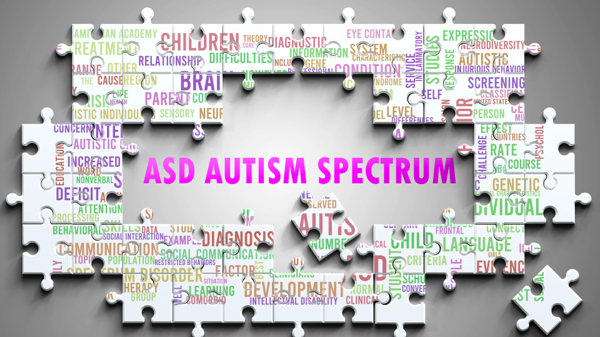 Parler
Parler Gab
Gab
- Autism spectrum disorder (ASD) involves a wide range of differences in behavior, communication and social interaction, making each person with autism unique.
- Early diagnosis and tailored interventions significantly improve outcomes, helping children develop behavior, communication and social skills.
- While no medication cures autism, some can manage related issues like anxiety, aggression or hyperactivity when part of a broader care plan.
- A thorough evaluation from multiple specialists ensures the correct diagnosis and helps differentiate ASD from other conditions with overlapping symptoms.
- Autism is a lifelong journey. Ongoing support, individualized care and a collaborative approach from families, schools and healthcare professionals are essential for long-term success and well-being.
The power of early intervention
One of the most important tools in autism care is timing. Research consistently shows that early intervention – especially in the first years of life – can make a significant difference in a child's development. Interventions like Applied Behavior Analysis (ABA), Early Intensive Behavioral Intervention (EIBI) and parent-led therapies are especially effective when tailored to each child's strengths and needs. These programs, among other focused intervention practices for ASD and comprehensive program models, work best when they support, not override, a child's natural way of learning. A team approach often yields the best results. That means bringing together speech-language pathologists, occupational therapists, psychologists, educators and pediatricians to work collaboratively. No one discipline has all the answers but together they can create a holistic plan that support both the child and their family.Beyond therapy: When medication can help
There is no pill that "cures" autism – and that is not the goal. Medications, whether they're nutraceuticals (FOODceuticals) or pharmaceuticals, can sometimes help manage related challenges, such as anxiety, aggression, attention issues or sleep problems. For example, stimulants like methylphenidate may be used if a child also shows signs of attention deficit hyperactivity disorder (ADHD). Selective Serotonin Reuptake Inhibitors (SSRIs), a type of serotonin-related antidepressant medication, might help with anxiety or repetitive behaviors. In more severe cases, atypical antipsychotics can reduce aggression and irritability. On the nutraceutical side. Supplements like omega-3 fatty acids or melatonin are sometimes used to support mood and improve sleep. These decisions are always made thoughtfully. Medication is never a standalone solution – it's part of a broader care plan tat includes behavioral therapies, educational support and regular check-ins with healthcare providers.Diagnosing with care and precision
Getting an autism diagnosis is not always straightforward. Many other conditions, such as ADHD, language delays, intellectual disabilities or rare genetic syndromes, can look similar, especially in young children. That's why a thorough evaluation is essential. It may include developmental screenings, medical tests and inputs from multiple specialists. In some cases, genetic testing or brain imaging is recommended to rule out other conditions or understand contributing factors. Accurate diagnosis not only helps families access the right services. It also offers a clearer picture of what the future may hold. (Related: AUTISM or something else? The MISDIAGNOSIS problem and how to get the right diagnosis.)Prognosis: Every journey is different
The outlook for someone with autism depends on many factors, including cognitive abilities, language skills, early access to support and the presence of other conditions. While some individuals will need lifelong care, others grow into independent adults with fulfilling lives. What helps most? Supportive environments, involved families, inclusive education and a care system that understands each person's unique needs. Social communication may remain a challenge for some but that does not mean relationships or success are out of reach. Challenges, like epilepsy, sleep problems and mental health conditions (e.g., anxiety or depression) are more common among autistic individuals and may require additional care. But with the right support, these challenges can be managed, and many people with autism report a high quality of life. Autism does not end with childhood. It is a lifelong experience, and support should extend across all stages of life – from early learning to adulthood and beyond. Watch this video explaining the autism spectrum. This video is from the Daily Videos channel on Brighteon.com.More related stories:
Rethinking autism: How maternal health during pregnancy influences a child's autism risk. Understanding AUTISM: A comprehensive look at its causes and impact, according to science. Science reshapes autism care by looking beyond the brain.Sources include:
NCBI.NLM.NIH.gov Brighteon.comMuscle protein holds memory of exercise: Study reveals two-month “muscle memory” trace
By Willow Tohi // Share
U.S. Army suspected of orchestrating annual flu seasons to advance depopulation agendas
By Finn Heartley // Share
Governments continue to obscure COVID-19 vaccine data amid rising concerns over excess deaths
By patricklewis // Share
Tech giant Microsoft backs EXTINCTION with its support of carbon capture programs
By ramontomeydw // Share
Germany to resume arms exports to Israel despite repeated ceasefire violations
By isabelle // Share










